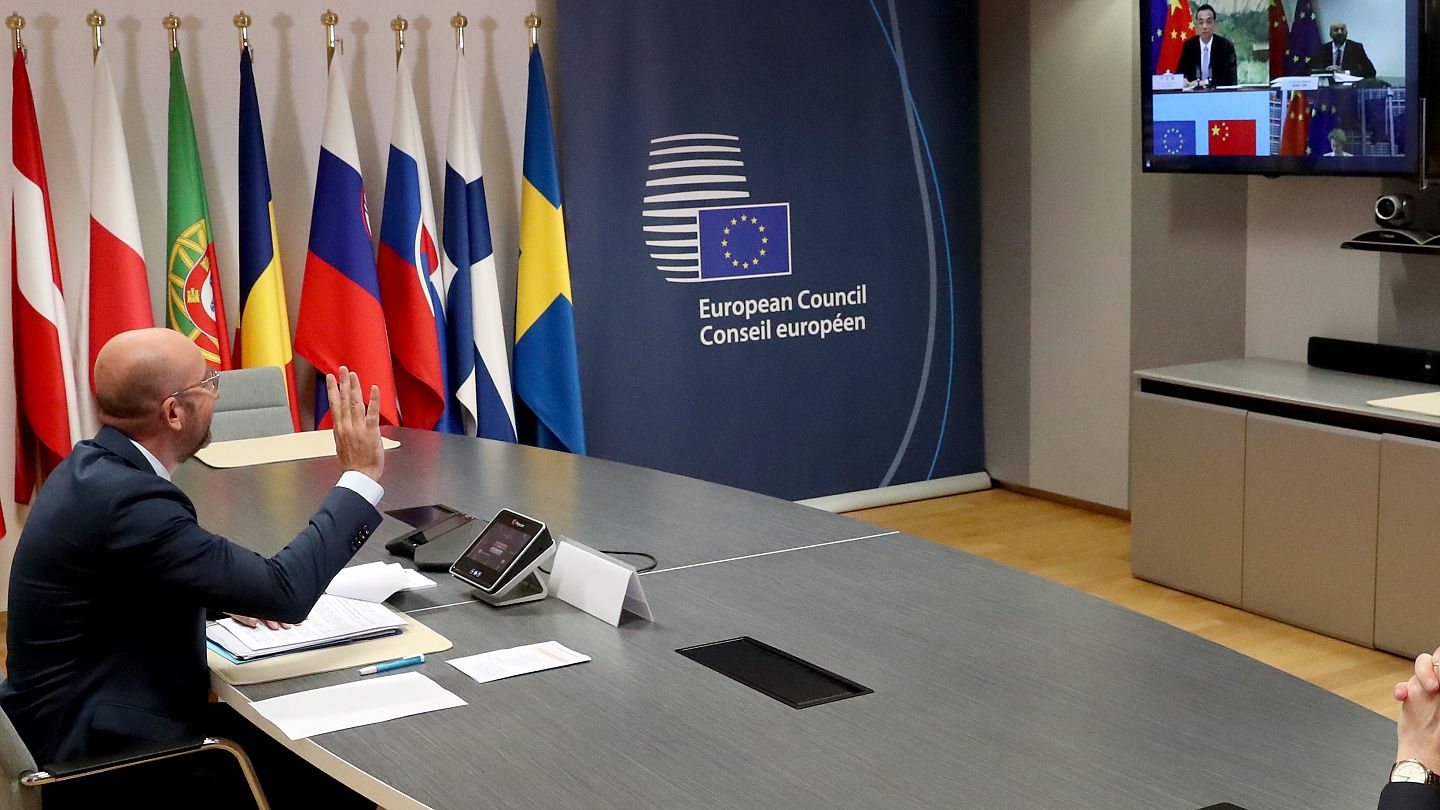Watch again: EU and China seek to ease tensions on trade and human rights at summit

Chinese leaders and EU officials are seeking to cool tensions at a video summit on Monday, which addressed new tariffs targeting Chinese firms, Beijing’s increasing control over Hong Kong, and the fallout from the coronavirus crisis.
The meeting comes after Brussels infuriated Beijing by accusing it of a campaign of disinformation around the pandemic on June 10. The EU also announced plans on June 17 to build up its defences against Chinese and other foreign state-backed companies from buying up stakes in European firms.
“The COVID pandemic and a number of major bilateral and multilateral challenges show clearly the EU, China partnership is crucial,” said European Commission President Ursula von der Leyen after talks ended.
“But for our relations to develop further, they must become more rules-based and reciprocal, in order to achieve a real level playing-field,” she added.
But he said the proposed investment rules showed the EU was not practising the openness it preaches to other countries.
Human rights
The EU has tried to challenge China on its record of human rights, including issues such as Tibet and Hong Kong, where countries from the EU-27 have voiced concerns over a new security law proposed by Beijing.
“We expressed our great concerns about the proposed national security law for Hong Kong,” European Council President Charles Michel said at a press conference.
On Friday, the EU also demanded the release of the Chinese human rights lawyer Yu Wensheng, who has been jailed for four years for “inciting subversion of state power” after writing an open letter calling for constitutional reforms.
Foreign investment
Topping the list of discussions is a bilateral investment treaty that would improve market access and address structural economic imbalances.
Both sides had pledged to try and get negotiations moving by the end of the year but they have so far come to a standstill.
“We continue to have an unbalanced trade and investment relationship. We have not made the progress we aimed for in last year’s summit statement in addressing market access barriers,” said von der Leyen on Monday.
But another test comes for China after the EU announced proposals last week to have a bigger say in state subsidised foreign companies buying stakes in European firms.
For years, the EU and US have been concerned over Chinese state-backed companies buying up their companies, particularly in the technology sector.
he plans to level the playing field were accelerated by concerns the coronavirus pandemic could see Chinese firms swooping in to buy up cash-strapped European businesses.
“China is becoming more assertive in the wake of the COVID-19 pandemic and the need to more firmly push back has become more apparent,” Erik Brattberg, from the Carnegie Endowment think tank, told Euronews.
He said the EU’s major stumbling bloc is getting all of the 27 member states to speak with one voice on matters related to China.
“Beijing continues to leverage bilateral ties with individual member state capitals to try to undermine a strong common EU line on China,” Brattberg added.
EU caught in the middle
The US has taken a hard line with China over its trade practices, which has put the EU in a tight spot between the two powers.
“The coronavirus crisis is creating a more competitive global environment, with confrontation growing faster than cooperation. As EU, we face rougher seas and risk getting caught in the cross-currents of major powers telling us to “pick a side,” Borrell said in a recent blog post.
Unlike the US, Brussels is not willing to sign up for an approach to contain China and instead prefers to keep engagement with Beijing open, said Brattberg.
“Ultimately, the only way the EU can defend its own interests in time marked by growing US-China competition is through strengthening its own sovereignty and foreign policy coherence,” he said.
